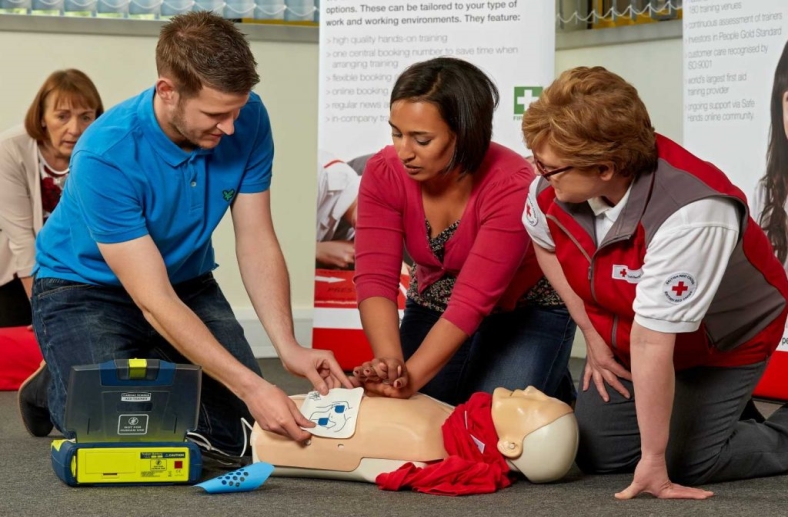Even before the COVID-19 health pandemic struck on a global scale, there were often headlines in the UK related to NHS waiting times for ambulances. Lives were being lost due to an inability to access appropriate and prompt medical care, and currently, the UK ambulance service are under more pressure than ever before, with patients forced to endure long waiting times for paramedics to arrive.
For those in life-threatening emergency situations, any wait longer than a few minutes, puts their very survival in jeopardy. But if more people took up First Aid Courses, the chances of a patient remaining alive until an ambulance arrives, would be far greater.
How first aid training can help reduce the burden on emergency services
Sometimes, an ambulance may take a long time to reach a critically ill patient because they’ve been directed to a situation that wasn’t a medical emergency. First aid training can help you assess when someone is critically ill or injured and requires the help of an ambulance, or whether they can be taken to A and E, or given first aid treatment before visiting their local GP.
When should you call an ambulance in the event of an accident?
If you’re faced with an accident victim and you are not first aid trained, you should call for an ambulance immediately, and then take steps to check on the individual and comfort them. If you are first aid trained, it’s essential to check for signs of life, and either administer CPR or place them in the recovery position if they’re breathing. If there are bleeding wounds, try to control the flow of blood while waiting for the ambulance to arrive.
Small actions such as talking to the person and keeping them warm and dry can help comfort patients and alleviate some of their suffering, but for serious incidents, first aid training can help keep them alive until the paramedics arrive.
Ultimately, all serious accidents warrant placing an urgent call to the ambulance service, but being first aid trained can help not just the victim stay alive while you wait for the ambulance to arrive, but can also help make the paramedics job easier when they reach the scene.
What should you do in the event of someone suffering a possible heart attack?
Again, heart attacks are serious incidents that always require professional medical intervention, but a few simple first aid actions, such as sitting them up, giving them aspirin to chew on (300mg) or encouraging them to take their GTN spray, can help you save their life while you wait.
What should you do in the event of someone suffering a possible stroke?
Response times are particularly crucial when someone has suffered a stroke, and if an ambulance isn’t able to get to you within minutes, you should find some other way to get them safely to a hospital. Swift assessment can help reverse the damage caused if the individual has a blood clot.
What should you do in the event of a possible spinal injury?
Keeping the individual still and calm is absolutely imperative if you suspect that they may have injured their spine. Assistance from paramedics will be necessary irrespective of whether the patient is breathing and conscious, as they will be able to stabilise the individual in such a way as to protect their spine from further damage. If they’re not conscious but breathing, you should carefully place them in the recovery position while you wait for an ambulance if you’re at all concerned about obstructions to their airway, even if you’re worried about their spine; just be sure to always protect their neck and back and try and prevent them from twisting.
First aid in Newcastle has never been such a valuable skill to have, particularly in light of ambulance waiting times in the UK and the crisis within the overburdened, underfunded NHS. Even if an ambulance can be with you fairly swiftly though, your actions as a qualified first aider can keep the individual alive while you wait for help to arrive, or reduce the chances of their condition becoming worse.

